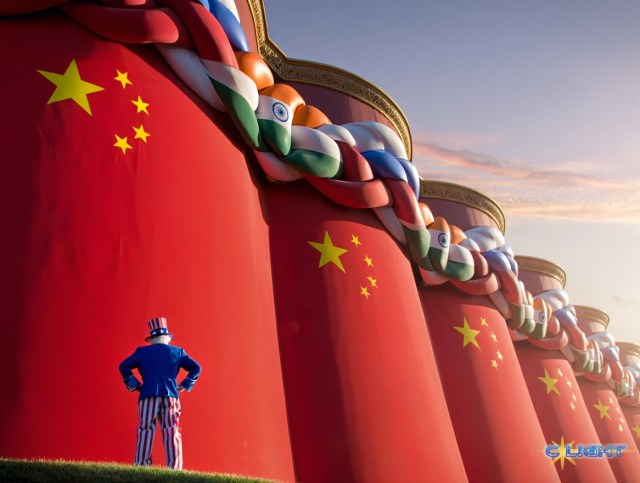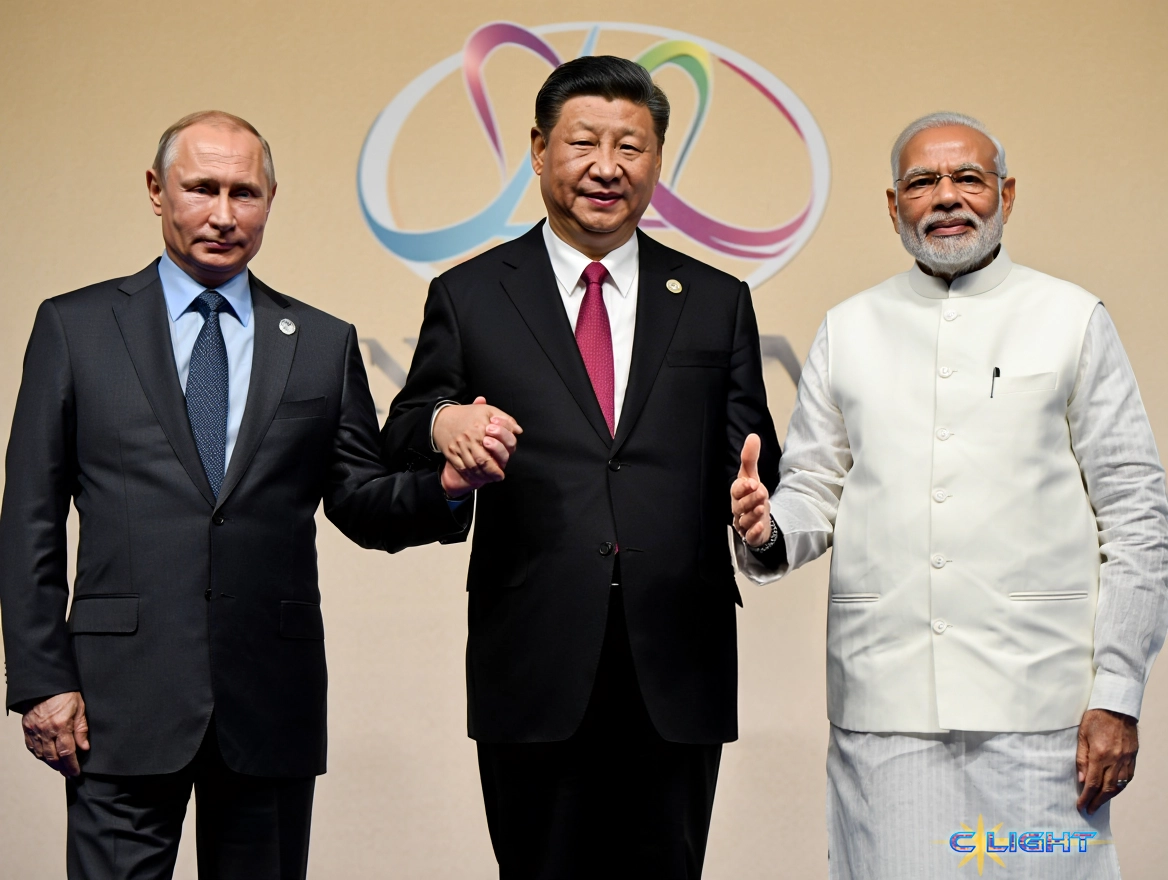5 minutes read time.
The image was as symbolic as it was stunning: Chinese President Xi Jinping, Russian President Vladimir Putin, and Indian Prime Minister Narendra Modi, holding hands, laughing, and walking jovially together at a summit in the Chinese port city of Tianjin. It is a portrait of a new and powerful alignment, a public display of solidarity that would have been almost unthinkable just a few years ago. This is not a random photo-op; it is the physical manifestation of a new global order taking shape, a direct and predictable consequence of the Felonious Punk administration’s arrogant, tariff-driven, and deeply self-defeating foreign policy. The stated goal of the “America First” doctrine was to reassert American dominance. The reality, as witnessed in Tianjin this week, is the catalytic formation of a powerful, unified, and explicitly anti-Western rival bloc.
The Architecture of an Alternative System
The summit of the Shanghai Cooperation Organisation (SCO), a once-sleepy regional security bloc, has been given a new and potent sense of purpose by the chaos of the administration’s trade wars. What we are witnessing is not just a meeting of leaders; it is the deliberate construction of a parallel system of global governance, designed with the explicit goal of circumventing American power. The agenda was a laundry list of initiatives aimed at creating a non-Western alternative to the post-World War II institutions that the United States has long dominated.
President Xi, in his opening remarks, called for the creation of a new SCO development bank, a direct challenge to the World Bank and the International Monetary Fund. This is the first and most critical step toward the bloc’s long-held dream of creating an alternative payment system that would make its members immune to the power of U.S. sanctions and the dominance of the dollar. This was not just talk; Xi backed it up with a promise of 10 billion yuan in loans to an SCO banking consortium and the creation of a new artificial intelligence cooperation center for member nations. As Vladimir Putin declared, this is the foundation of a “new system of stability and security in Eurasia… unlike Euro-centric and Euro-Atlantic models.” It is the language of a confident and rising power, actively building the infrastructure for a post-American world.
The Catalyst: A Self-Inflicted Wound of American Foreign Policy
This new sense of purpose and unity did not emerge from a vacuum. It was a gift from Washington. The Felonious Punk’s entire foreign policy has been based on a “divide and conquer” strategy of bilateral bullying, using the threat of tariffs and sanctions to strong-arm individual nations, allies and adversaries alike, into submission. The result has been the exact opposite. Instead of being divided and conquered, America’s rivals are now uniting and cooperating.
The administration’s relentless trade war and its contempt for multilateral institutions have created a power vacuum that China and Russia are now skillfully and eagerly filling. The SCO has become the primary vehicle for this project. What was once a minor regional organization is now the gravitational center for a growing coalition of non-Western nations that have concluded that the American-led order is no longer stable, reliable, or beneficial to their interests. As one analyst bluntly put it, “If the U.S. president and his acolytes thought they could use tariffs to pressure China, India, or Russia into submission, that (encounter) says otherwise.”
The India Pivot: A Geopolitical Catastrophe
The most significant and strategically damaging manifestation of this new alignment is the public rapprochement between India and China. For decades, the central pillar of American foreign policy in Asia has been the cultivation of India as a democratic, regional counterweight to an authoritarian China. The Felonious Punk administration has systematically dismantled that pillar. By slapping harsh tariffs on India over its continued purchase of Russian oil, the administration has treated a crucial potential ally as just another transactional adversary to be punished.
The result is now on full display. Prime Minister Modi, visiting China for the first time in seven years, is mending fences with President Xi, and after the summit, he was seen taking a ride in Putin’s armored limousine. These are not just symbolic gestures; they are the signs of a massive geopolitical realignment. Pushed away by American hostility, India is now being pulled into the orbit of a rival bloc that is offering loans, technological cooperation, and a partnership based on a shared opposition to American dominance. The administration’s tariff-induced stubbornness has achieved what was once thought impossible: it has pushed the world’s two most populous nations, long-time rivals themselves, into a closer and more cooperative relationship, united by a common antagonist in Washington.

The Consequences of Contempt
The images from Tianjin are a chilling portrait of the world that the administration’s own arrogance has helped to create. A foreign policy based on contempt for allies and a naive belief in the power of unilateral bullying has failed catastrophically. It has not made America great again; it has made America isolated, and it has given its adversaries a powerful reason to set aside their own differences and unite against it. The “America First” doctrine is rapidly leading to an “America Alone” reality. The jovial, hand-holding display of Xi, Putin, and Modi is more than just a photo-op; it is a clear and direct message to Washington that the era of uncontested American dominance is over, and a new, more challenging, and multipolar world is being born.
Discover more from Clight Morning Analysis
Subscribe to get the latest posts sent to your email.










